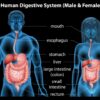A proper diet and exercise play a vital role for couples who want to give birth. These are one of the basics you need to know to help improve fertility in the long run. It varies from person to person; thus, talking to a healthcare professional can lead you to wiser practices. Experts will provide a particular diet and workout plan to easily manage weight for more chances of getting pregnant.
The First Fertility IVF is one of the treatment centers that can provide remedies to boost fertility. They guide patients with the proper process, like IVF, promoting healthy childbirth and even helping to relieve severe fecundity issues.
What is the Fertility Diet?
A couple’s diet can influence pregnancy, whether you like it or not. The fecundity diet differs from a weight loss diet’s purpose. However, losing weight can be necessary in some cases to improve fertility. A healthy weight will cause ovulation or a higher chance of pregnancy.
Knowing what to eat and what not to eat is crucial to get pregnant. For instance, adding whole grains to your diet will reduce blood sugar and increase fecundity. Fatty milk and yogurt are good alternatives to skim or low-fat milk.
Moreover, take plenty of iron and protein by means of fruits and vegetables to complete nutrition until it impacts fecundity. A fertility diet also requires drinking much water instead of alcohol, soda, and other sugary beverages.
How Does Fertility Diet Work?
Following a healthy and strict diet is essential before conceiving a child. Plan ahead, as a fertility diet is not a one-size-fits-all meal plan. It pertains to controlling the weight gain suitable for a higher chance of pregnancy.
A fecundity diet can offer a lot of health benefits. It demands cutting your sugar intake to prevent the risk of diabetes, while trans fats for heart disease. Switching to a high-fiber diet is an excellent solution for overall health, like helping you gain weight necessary for your fecundity journey.
On the other hand, meals rich in saturated fats and sugars can trigger infertility. Replacing your diet with low in sugar, high in antioxidants, and fatty acids is wise. It should be in moderation because too much can put health at extreme risk. Consult your doctor first to decide on a diet to aid fecundity issues.
How Does Exercise Help Fecundity?
Being physically fit helps reduce infertility and increase birth rates, according to studies. This applies to both genders but more to women prone to PCOS.
If you are overweight, then starting a workout plan is crucial. Exercising daily can increase conception rates than never exercising at all. There is a reduced risk of infertility among women allotting time for cardiovascular activities. These include walking, running, and swimming, in low intensity as men.
Doctors do not recommend intensive physical exercises. It can reduce fertility and impact the sperm quality of men. Nonetheless, if you want to lose weight, physical training must still be in moderation to ensure an increasing fertility rate.
Sample Meal Plan Before Pregnancy:
Getting started with a healthier lifestyle is the hardest. Below, we share a set of nutrients that will balance hormones and impact reproduction function.
1. Calcium:
Pregnant or not, women require a calcium intake of not less than 1000 micrograms every day. It exists in yogurt, cheese, milk, butter, and spinach. Calcium nutrients make the body stronger even before pregnancy.
2. Vitamin B:
Four hundred micrograms of vitamin B daily has an impact on getting pregnant. It promotes cell growth to boost fecundity among couples. Green vegetables, chickpeas, and Brussels sprouts are possible sources of Vitamin B.
3. Omega-3 Fatty Acids:
This nutrient works on hormonal health, preparing the body for pregnancy. It lowers any maternal risk and boosts fecundity among obese women. Cauliflower, spinach, broccoli, walnuts, and fish are rich in omega-3 fatty acids.
4. Protein:
It is not animal protein that can increase fertility but protein from plants. The prior can trigger ovulatory infertility, wherein women find it harder to get pregnant.
5. Whole Grain:
Carbohydrates have no role in boosting fecundity, but it is the source that can make a difference. A high glycemic load has more sugar making it harder to break down into pieces and more likely to trigger infertility than a low glycemic load.
6. Unsaturated fat:
You can include These healthy fats in your fecundity diet. They are plant sourced and a great alternative to most fatty foods.
Remember to exercise daily and eat a healthy diet to boost fertility. Better talk to a doctor to have a specific meal plan suitable for your needs. Not all infertility cases are the same, nor the solution for each patient.
Final Thoughts:
The best remedy for infertility is a proper diet and exercise. It demands time and discipline to follow routines to boost fertility with your partner. Professional help is vital to know what you can do to prevent worse circumstances. It is also wise to take action before signs of infertility appear, making it more possible to conceive a child. It is a common social problem, so do not hesitate to ask for help and get cured. Opt to visit a fecundity treatment center to obtain the right solution.










